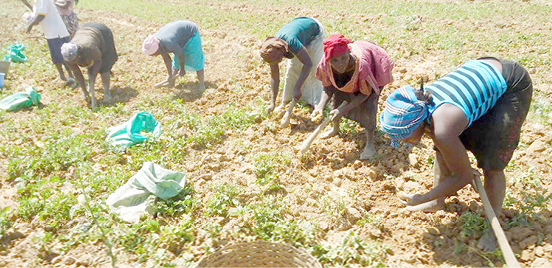Accessing capital for land, equipment, and other inputs is key to any business, but in agriculture, it can be a major barrier to entry for young and beginning farmers. Fortunately, the next generation of farmers has several allies who stand ready to help make the challenge of accessing capital less daunting.
Have a plan
Not having a plan is one of the biggest pitfalls Kitt Tovar Jensen sees when it comes to beginning farmers. Tovar Jensen is the manager of the Iowa State University (ISU) Beginning Farmer Center.
“When you’re applying for a loan, lenders are going to want to see a business plan,” she says. “You need to map out where you’re going.”
The business plan could be formally written, or it could be as simple as being able to articulate what your goals are, says retired banker Leslie Miller, a farm financial planning associate with ISU Extension.
- King Charles crowned in colourful coronation ceremony
- Victor Osimhen Not For Sale This Summer – Napoli President
“If you can sit down and verbally describe to a lender what you want to do, a lot of the time that is sufficient,” Miller says.
It’s important to have your finances in order, she says. Be prepared with a balance sheet, explanation of cash flow, the number of acres you already have and yield data, and any other information that demonstrates your experience. Extension specialists can help pull you these things together, she adds.
“That way, the farmer and lender can spend more time analyzing the plan rather than just putting it together,” she says.
Find your people
He also encourages beginning farmers to find a mentor and leverage their networks to help build their story and add to their knowledge base.
“It could be a family member that’s involved in the farm,” he says. “It could be others through a university or an FFA program they can use to build their perspective. Having somebody with more experience that can help ensure they’re on the right path or offer sound advice to course-correct when they’re not, it can make a difference in covering blind spots when they are just starting out.”
Miller says it’s also important to find a lender the farmer is comfortable with and who understands the operation, even if that means talking with multiple lenders.
“There are not a lot of lenders that have experience with cow-calf operations,” she says. “There are not a lot of lenders working with people that have contract hog buildings… So just make sure whatever lender you’re working with, [he or she] does understand that business because it does make a difference.”
Know your resources
A variety of resources are available to young and beginning farmers to help them get where they are trying to go.
“We need the next generation of farmers producing the food and fuel we need in this country, and that’s the most important way we are going to stop the exodus from rural America,” says Zach Ducheneaux, USDA Farm Service Agency (FSA) administrator.
Ducheneaux says FSA loans can be a helpful alternative to commercial loans for beginning farmers who may not meet the credit standards commercial lenders look for. FSA loans also have more favorable interest rates and longer repayment periods.
Be patient
Tovar Jensen and Miller both warn against taking on too much debt to accelerate growth of the operation. “If you are gaining net worth really fast, a lot of times it’s because you have a lot of debt and the economic environment has been working in your favor, so the debt has not hurt you,” Miller says. “But when things start working against you and you start seeing some losses, that debt can suck you down quickly. That’s one of the things we learned in the ’80s. A lot of times people who grew really fast, they also fell behind really fast.”
Tovar Jensen says it can also take a toll on farmers’ mental health to have a large debt hanging over their heads, even when they can afford it. “You don’t need to bite off more than you can chew,” she says.
Get creative
She encourages beginning farmers with limited resources to get creative and try things such as specialty farming to get started.
Miller says working an off-farm job for five to 10 years to save money, cover living expenses, and gain insurance benefits is also a good approach.
“The most successful beginning farmers I’ve seen usually start with off-farm income,” Miller says. “Slow progress is better than progress that’s way too fast.”
Source: Successful Farming

 Join Daily Trust WhatsApp Community For Quick Access To News and Happenings Around You.
Join Daily Trust WhatsApp Community For Quick Access To News and Happenings Around You.


